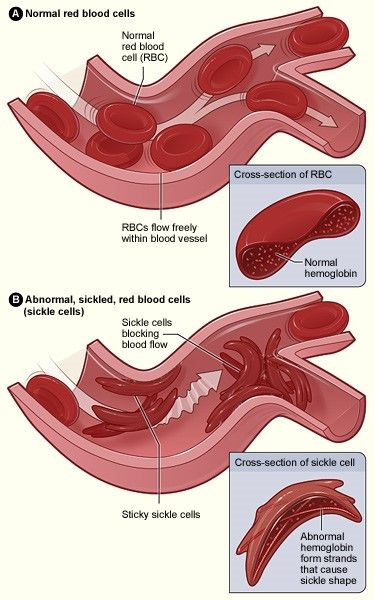Signs Of Anemia: Tired All The Time And Other Symptoms Of The Blood Disease; What It Means

Our bodies are constantly making new red blood cells to carry oxygen from our lungs to other organs. But when people have anemia, they are not making enough. If you feel tired and weak all the time, this may be the reason.
Anemia comes in many forms. What could potentially be the simplest to treat are the kinds that develop when the body isn’t getting enough iron, folate or vitamin B12. The Mayo Clinic calls iron deficiency anemia the most common type in the world. “Without iron supplementation, this type of anemia occurs in many pregnant women,” the organization says. “It is also caused by blood loss, such as from heavy menstrual bleeding, an ulcer, cancer and regular use of some over-the-counter pain relievers, especially aspirin.” People with anemia linked to a B12 deficiency may have a problem processing the vitamin. These types of anemia can cause symptoms like fatigue, weakness, chest pain, shortness of breath, organ damage and neurological problems.
Read: Why You’re Always Cold
Aplastic anemia is another type of the condition, but it causes a shortage of all three types of cells found in the blood: red blood cells, white blood cells that fight infection, and platelets that are involved in clotting. According to the National Heart, Lung and Blood Institute, the bone marrow simply doesn’t make enough of them in this rare disorder. It can cause irregular heartbeats, an enlarged heart, infections, bleeding, heart failure or even death.
Other types of anemia aren’t related to a low production of cells, but rather their destruction. Sickle cell disease, a genetic form of anemia, is characterized by abnormally shaped red blood cells. They are supposed to look like a flexible disc or doughnut, but their inflexibility makes it hard for them to move through blood vessels, the National Heart, Lung and Blood Institute says. They can get stuck to the vessel walls and block blood flow, cutting off oxygen from your tissue, and burst apart and die much earlier than regular red blood cells. “The lack of tissue oxygen can cause attacks of sudden, severe pain,” the institute explains. “These pain attacks can occur without warning, and a person often needs to go to the hospital for effective treatment.” Other symptoms include chronic pain between those episodes, as well as fatigue and irregular heartbeats. In the long-term, depriving the organs of oxygen will damage them.
Other signs of anemia, the Mayo Clinic says, include pale or yellowish skin, lightheadedness, headache or cold hands and feet. “At first anemia can be so mild that it goes unnoticed. But symptoms worsen as anemia worsens.” Feeling fatigued, perhaps the most well-known symptom of anemia, can also be caused by many other things, but being inexplicably tired and weak all the time might warrant a visit to the doctor to rule out anemia.
See also:



























